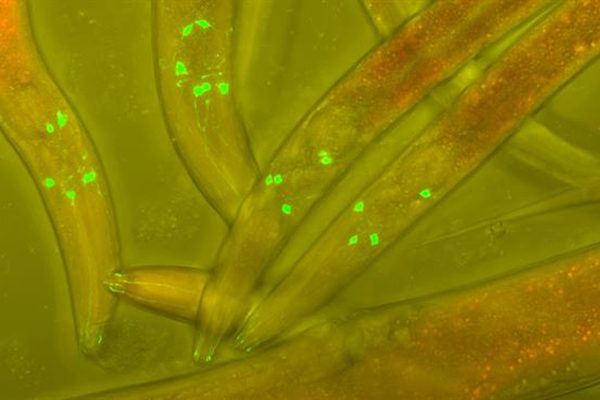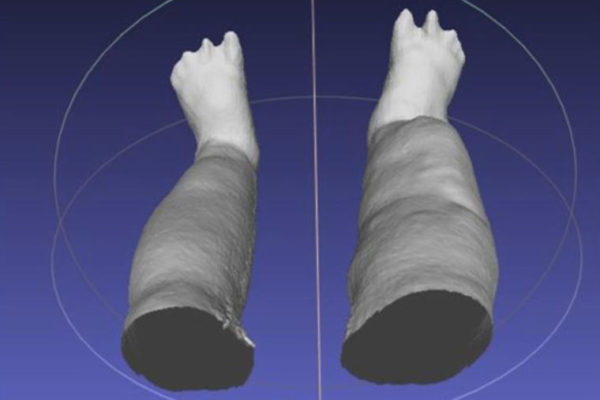Engineers to look at how brain processes signals in different organisms
Two engineers at Washington University in St. Louis are combining their expertise in studying brain networks to determine whether there are rules that determine how sensory stimuli, including touch, smell, sound, sight or taste, get mapped on the brain onto behavioral response.
Evaluating a next-gen learning management system
Representatives of the two learning management systems under consideration to replace the current Blackboard platform at Washington University in St. Louis will be presenting demonstrations and open discussions for Danforth and Medical campus faculty, staff and student leaders Oct. 19 and 20 and Oct 26 and 27.
New gene-altering treatment offered for certain blood cancers
A new immunotherapy that targets certain blood cancers is being offered for the first time at Siteman Cancer Center. Newly approved by the FDA for types of advanced non-Hodgkin lymphoma in adults, the CAR-T cell therapy harnesses a patient’s own immune system to fight cancer.
Video: CRETE House debuts at Solar Decathlon 2017
Over the past two years, Washington University students have worked with industry partners to design, fabricate and now finally construct CRETE House as part of Solar Decathlon 2017.
Portable 3-D scanner assesses patients with elephantiasis
Scientists at the School of Medicine in St. Louis, working with collaborators in Sri Lanka, have shown that a portable scanning device can measure limb enlargement and disfigurement faster and more easily in patients with elephantiasis.
Barnes named Packard Fellow
Jonathan Barnes, assistant professor of chemistry in Arts & Sciences at Washington University in St. Louis, was among 18 leading young researchers across the United States honored Oct. 16 as a 2017 Packard Fellow.
Nasdaq president to speak for Calhoun Lectureship series
Adena Friedman, president and chief executive officer of Nasdaq, will be on the campus of Washington University in St. Louis, at 4 p.m. Thursday, Oct. 19, in Knight Hall’s Emerson Auditorium as part of the David R. Calhoun Lectureship.
The First 40: Three first-year students record a second of video a day
We asked three members of the Class of 2021, including Astrella Sjarfi, to record one second of video every day for their first 40 or so days of college. Learn more about Sjarfi and her two fellow students as they navigated these first unforgettable days on the Danforth Campus.
Choosing between work and breastfeeding in Haiti
New mothers in poor urban communities may feel the necessity to work and have a measure of food security rather than trying to find the time and ability for exclusive breastfeeding, a health issue that could be rectified with social support, researchers from the Brown School at Washington University in St. Louis found in a study in Haiti.
Washington University a partner in greenway project to connect Forest Park to the Arch
Washington University in St. Louis is participating in a major public-private partnership that aims to connect Forest Park to the Gateway Arch grounds. The Chouteau Greenway will connect neighborhoods, parks, large employers, transit and dozens of cultural and educational institutions.
View More Stories








